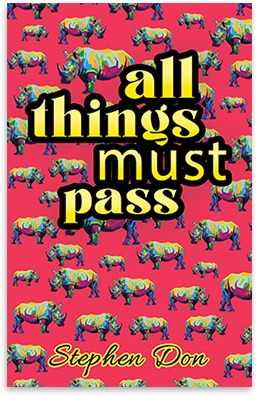
Three Contenders for Best Film Ever & ‘Homo Deus’
Okay, little originality in the choices here. But they do divide people and I want to give my penny’s worth…for what it’s worth.
Citizen Kane The reason I think that a lot of people don’t dig Welles’ greatest hit is its formal and complex structure. Why not just tell the story in a straight line from birth to death? Well, that would be okay if there weren’t multiple views of Kane, contradictory and biased. For me this is the film’s joy. Every time I watch Citizen Kane, I get the feeling of being drawn inexorably into a labyrinth. To many this is not what they want. To focus on Kane as a megalomaniac, spoilt rich boy is to see the surface and it’s not an appealing surface. But the film is, in my humble opinion, a Baked Alaska of a story. Dig below the surface and you find someone who had everything and nothing. Focus on these moments, which are clues to the real Kane: his mother’s coldness as she sends him away for a ‘better’ life, the moment when his guardian asks him, ‘What would you really like to have been?’. At that point, Kane is a mature man, wealthy and successful. And what does he reply: ‘Everything you hate’. It sends shivers down my spine just thinking about it. He had a fortune with all its trappings, but he never found love. This is a tragedy.
Vertigo This has been voted Hitchcock’s greatest and in recent times has nudged Citizen Kane from the top spot. It is a great film, but it’s not actually my favourite Hitch movie ( I veer between Psycho and Strangers On a Train). But here’s why I think Vertigo works on our subconscious and holds that top spot. It’s to do with the oneiric theory of film: in other words, that film plays back to us as a dream and puts us in a trance-like state. There is a section of the film when James Stewart’s character, Scottie, is tailing Kim Novak’s character, Madeleine. This is absolutely dream-like and I can close my eyes now and see the movement of their cars as if I had dreamt it last night. The whole film is an exercise in lulling the viewer into the trance-like state that Scottie falls into. I’m convinced that none of this is accidental. Hitch planned everything, even down to the speed of the cars. Too slow and any tension would be lost. Too fast and it becomes an adrenalin-pumping car chase such as we have in Bullitt. In dreams there is a heightened tension and focus. Hitch was the master at achieving these effects.
2001: A Space Odyssey Kubrick’s masterpiece looks as fresh today as it did upon its release in 1968. So ground-breaking that it leaves many films behind in terms of technological brilliance. But I was reading quite recently a book by the historian Yuval Noah Harari (Homo Deus) in which he outlines a possible future for mankind based on certain trends such as the rise of Dataism and the super-fast development of AI. All through the book I was anticipating at least a reference to Kubrick’s film. In 2001, we have a super computer that takes it upon itself to kill its human cargo in an effort to keep its mission on track. This is done with great tension, but also great humour. For many, 2001 is overlong and has problems with pacing. It has a long set up and almost divides into two separate films. But, like Vertigo, it has an oneiric quality and draws us into its free-floating, gravity free world where the machine has deadly intentions. Masterful stuff!
Post Views : 740